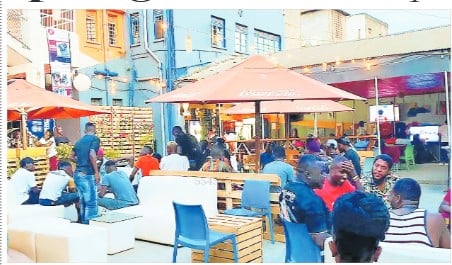Prime
KCCA to collect Shs8b from taxis in new tax

Taxis working within Kampala will be expected to pay Shs720,000 per annum. PHOTO | FILE
What you need to know:
- Taxis which operate within Kampala and beyond for example Mbarara will pay Shs840,000 per year, while those operating only within Kampala will be expected to pay Shs720,000.
Kampala Capital City Authority (KCCA) has a target to collect Shs8b annually in park user fees from taxis working within Kampala and beyond effective January 2021.
Speaking to Daily Monitor, Mr Robert Nowere, KCCA deputy director revenue collection, said they estimate to collect at least Shs8b from taxis and about Shs2b from other commercial road users including trucks and special hires.
“Taxis which operate within Kampala and beyond, for example Mbarara will pay Shs840,000 per year, while those operating only within Kampala will be expected to pay Shs720,000 per year,” he said, adding that there is an estimate of 15,000 taxis operating within Kampala.
The park user fees, which take effect in January were instated after the amendment of the fifth schedule of the Local Government Statutory Instrument, which gazetted the park user fees that would be paid by commercial road users including buses, taxis and special hire vehicles.
Payment of the fees was halted in 2017 after taxi operators complained of the exorbitant and duplicity of fees charged by KCCA and different local governments.
The amendment allows for uniform fees across different vehicle types.
Previously, KCCA imposed a monthly park user fee of Shs155,000, which was thereafter lowered to Shs120,000.
Mr Mustafa Mayambala, the Uganda Transport Development Agency chairman, said taxi operators are aware and willing to comply with the new changes, but noted that there are still some bottlenecks to solve. “We have temporary route charts expiring in December and it was decided that we shall get new ones in January but there are no signs of getting them, yet it is those charts that indicate how much in fees to pay based on your driving routes,” he said reaffirming customers that the fees would not impact the current taxi fares.
Registration of taxis begun before lifting of the lockdown, a process that saw registered taxis receive temporary routes.
Mr Nowere explained that the authority recently issued a notice inviting all registered taxis for permanent route charts to enable implementation of the collections next year.
Ms Dorothy Kisaka, executive director, KCCA said the reinstatement of road user fees for commercial vehicles is one of the many ways expected to draw revenue collections to satisfy the Authority’s ambitious Shs7 trillion five-year strategic plan.
Economic mkutano
The discussion to reintroduce the fees was on the sidelines of a two-day high policy dialogue organised by Economic Mkutano 2020 in partnership with United Nations Capital Development Fund, Cities Alliance, Makerere University, among others.
The meeting sought to devise means of how to finance the necessary investment in local service delivery as local governments develop their five-year strategic plans in line with the NDP III.
Mr Jim Mugunga, director public-private partnerships (PPP), Ministry of
Finance noted that there is an increasing reliance of local government on central government with over 90 per cent of their budgets financed by the latter. Among the recommendations from the cross- section of experts in different fields was for local governments to undertake PPPs.
Mr Dmitry Pozhidaev Head of Office UNCDF in Uganda urged local governments to undertake efficient collection and management of existing revenues while developing innovative financing methods.
He also committed financial and technical support to government and local government to ensure sustainable financing.




